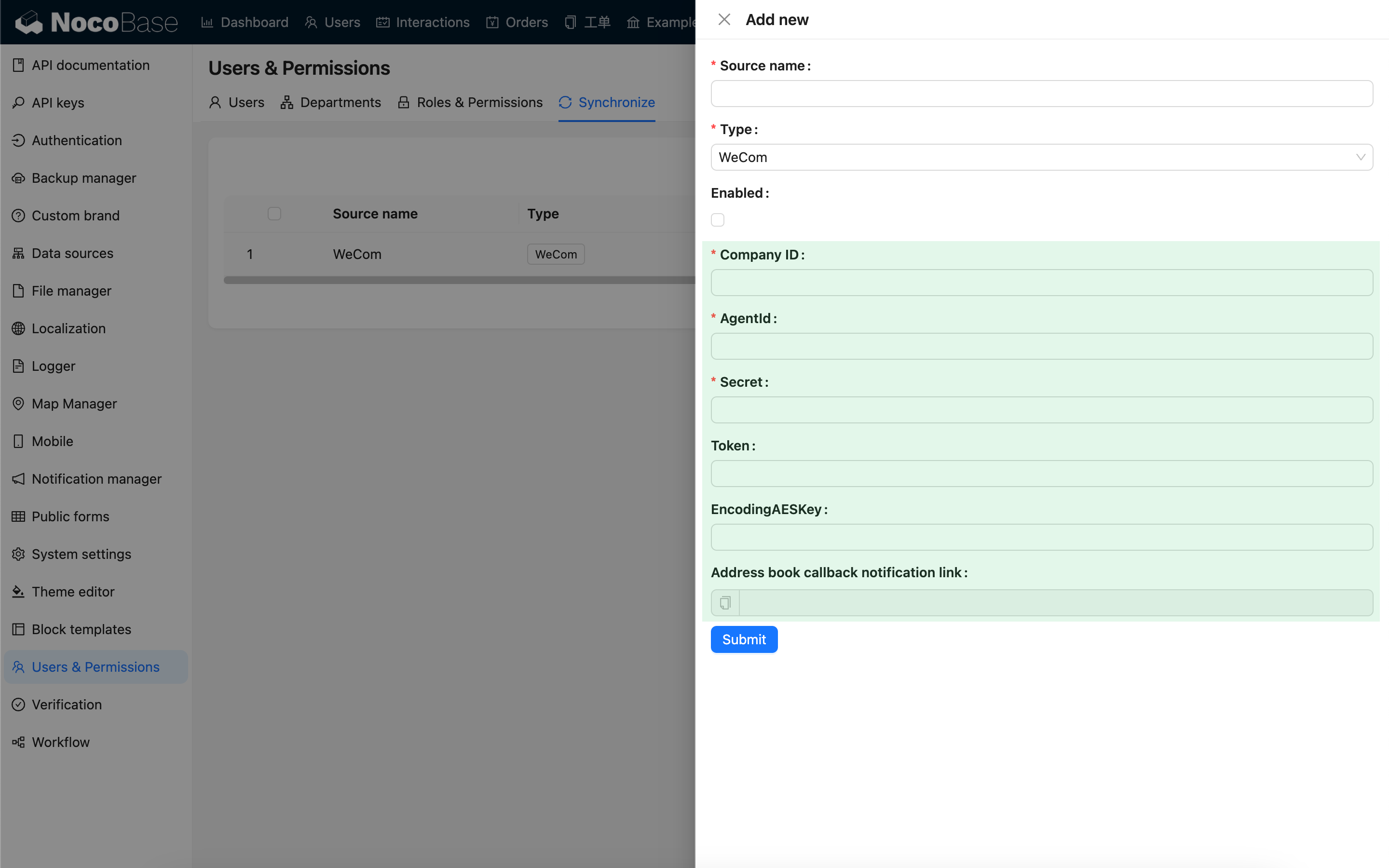Extending Synchronized Data Sources
Overview
NocoBase allows users to extend data source types for user data synchronization as needed.
Server Side
Data Source Interface
The built-in user data synchronization plugin provides registration and management for data source types. To extend a data source type, inherit the SyncSource abstract class provided by the plugin and implement the relevant standard interfaces.
The SyncSource class includes an options property to retrieve custom configurations for the data source.
Description of UserData Fields
| Field | Description |
|---|---|
dataType | Data type, options are user and department |
uniqueKey | Unique identifier field |
records | Data records |
sourceName | Data source name |
If dataType is user, the records field contains the following fields:
| Field | Description |
|---|---|
id | User ID |
nickname | User nickname |
avatar | User avatar |
email | |
phone | Phone number |
departments | Array of department IDs |
If dataType is department, the records field contains the following fields:
| Field | Description |
|---|---|
id | Department ID |
name | Department name |
parentId | Parent department ID |
Example Implementation of the Data Source Interface
Registering a Data Source Type
The extended data source must be registered with the data management module.
Client Side
The client user interface registers data source types using the registerType method provided by the user data synchronization plugin's client interface:
Backend Management Form

The top section provides general data source configuration, while the bottom section allows for registration of custom configuration forms.

